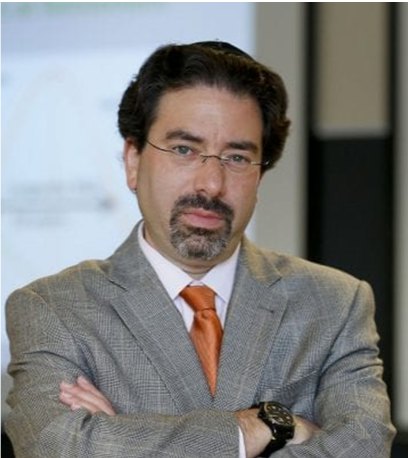
By Gordon Wiebe, The Capital Partner
Special to the Financial Independence Hub
Professor Moshe Milevsky wants us to re-think the metrics we use for retirement calculations. Instead of basing retirement income amounts on our age i.e., the number of orbits around the sun, Dr. Milevsky suggests we consider using our biological age. What is your biological age?
Advances in science suggest our biological age is based on our actual physical shape or our personal physiology. Rock stars like Sting, Phil Collins and Ace Frehley were born in 1951. Their legal age is 70, but their actual condition may be substantially different from Mark Hamill (Luke Skywalker) or Dr. Jill Biden (U.S. First Lady) who also turned 70 in 2021.
The cumulative effects of genes, lifetime dietary habits, exercise, social conditions and stress levels for instance, could lengthen or decrease life expectancy and therefore provide a better indication of future retirement income needs. Recent scientific advances are helping make this information more available to seniors, advisors, researchers and policy advisors.
Background
TCP: From where does your passion for mathematics originate?
M.M. I guess it comes from my life as an undergrad. I was taking various courses including one on English literature and essay writing. I handed in an essay and received a bad grade. The professor said, “You really can’t write to save your life, you might want go into math.”
I did and I got an undergraduate degree in mathematical physics. Then, I went to graduate school and studied math and statistics, but I was really interested in gravitational physics. That was my thing, like how a golf ball moves after a drive, the arc that it makes, etc.
My thesis supervisor said, “Moshe, you’ll never find a job with that kind of specialty. You might want to go to business school.” So, I moved into business and finance and it’s where I’ve been for the past 25 years.
TCP: You also have a passion for financial history. Is there a period in history that strikes you as particularly innovative or ingenious?
M.M. There is. I’m interested in the 17th century, specifically 17th century Europe and the evolution of financial products, instruments, and economics.
Anything from the crowning of James II in 1685 until the ascension of George II in the mid-18th century.
TCP: I’m not that familiar with that era. Does it line up with the advances in math, probability, and statistics?
M.M. It does. There was this interesting alignment of people interested in mathematics and statistics and they developed the basics of probability theory, economics, and finance. It was an alignment of interests that led to many of the instruments we use today.
You know, nobody would say that 1690 was the origin of the i-Pad or the i-Phone or the laptop. But, many of the financial instruments we use, whether it’s pensions, annuities, stocks, bonds, mutual funds, they all kind of originated in the late 17th century. You can almost trace back a direct line. I’m fascinated by that. It interests me and I’ve spent a lot of time looking at history from that period.
TCP: Among other things, the pandemic has shown how segments of the population struggle with basic math principles. Are you surprised by the lack of financial literacy?
M.M. It is a problem the pandemic has brought home. I think it’s a problem that finance has brought home. A lot of people are incapable of mathematical reasoning and that’s not healthy in today’s very quantitative, data driven environment.
Thousands of years ago, you had to make sure to out run the dinosaurs and get home in time for dinner. What did your brain have to do? Nobody was asking you to solve calculus problems.
Now, we have to evolve to deal with these very quantitative issues and make decisions and I think the pandemic has brought that home very starkly. There’s some completely irrational decision making because of a misinterpretation of probabilities and the odds. Just look at Toronto.
There are 300 infections, and everybody is walking around like it’s Ebola and every other person has it. In some sense, you have to step back and say, “Wait a minute. What are the probabilities? Do you understand all of the things you’re sacrificing?” It’s all probabilities. Those things all come down to mathematical reasoning.
I do think the educational system should focus more on some of these statistical, data driven issues. I think financial literacy is an absolute must.
My bread and butter is teaching undergraduate students at the university. Undergraduate Personal Finance. That’s a course I’ve been teaching now for almost twenty years.
It’s basic personal finance. You know. What’s a tax return? What’s an insurance policy? How does a mortgage work? What’s an RRSP?
Why do I have to teach this to 22-year-olds? Why don’t they know this from high school? Why isn’t this covered before I see them? And, why are only the ones that I teach in Business School getting this? What about the rest of the students who are studying something else? Why is this not considered a national emergency? People are wandering into the world without the requisite tools.
TCP: Carrying credit card balances in perpetuity, putting 5% down on million-dollar homes …
M.M. Let alone, just verify that what they’re paying is correct, right? Nobody’s able to do that because it’s all coming from calculations that are being done by algorithms that nobody wants to or even knows how to verify. So, there are a number of things that worry me.
The Mathematics of Retirement Income
TCP: I haven’t had a chance to watch the movie “The Baby Boomer Dilemma,” yet. I’ve just seen the trailer.
M.M. Yes, that’s an interesting one. I’m not sure how I got dragged into that, but I now have an IMDb movie rating. I am now officially a Hollywood actor (chuckling). Go figure.
TCP: On the trailer you say, “what’s been happening over the last few years is our accounts have been growing. It looks like we are getting wealthier. But, the income that we can get from that sum of money is shrinking.” What did you mean by that? Continue Reading…







